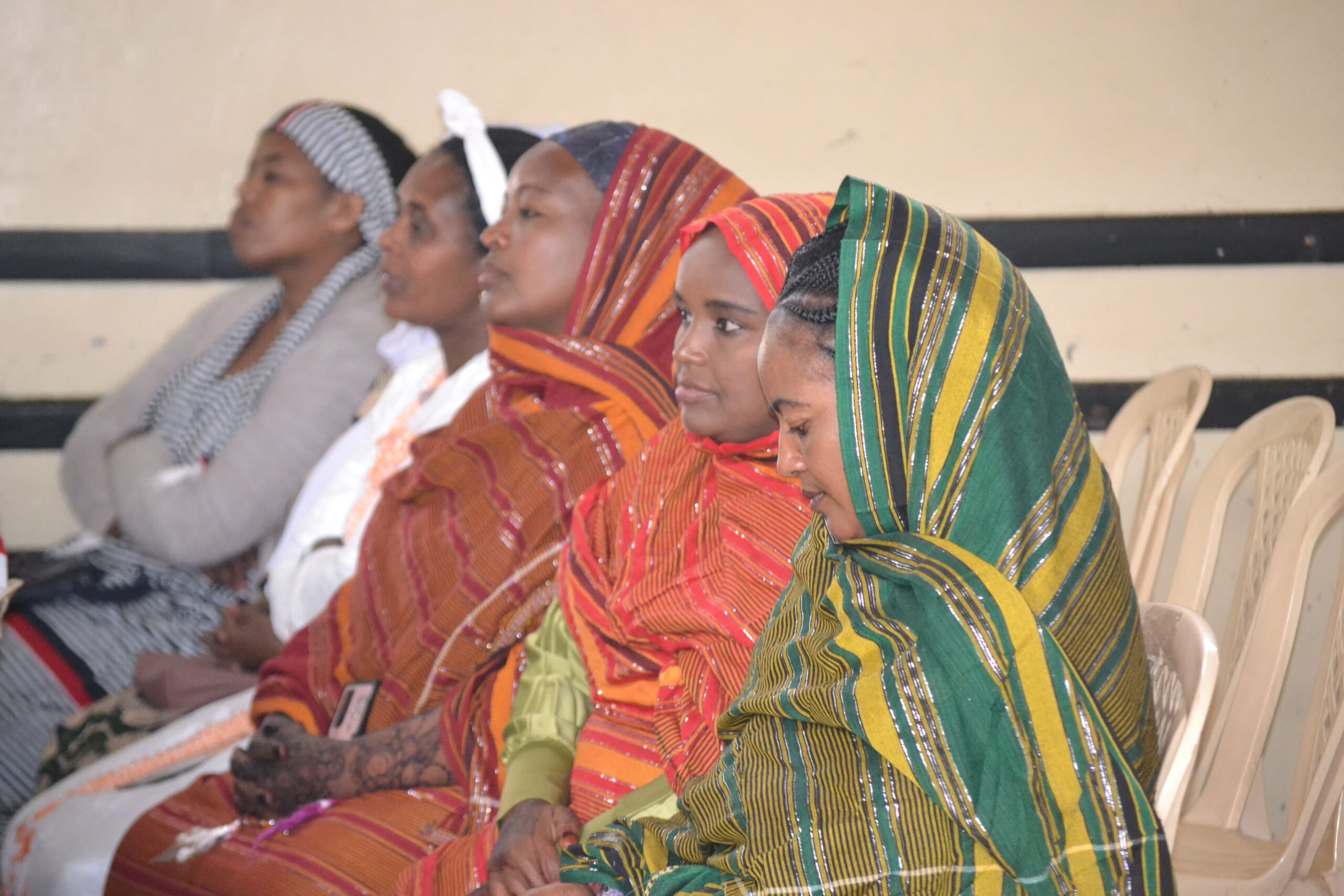
Women of Somali and Oromo origin participating in the Kueleka Mabadiliko program
After conducting workshops addressing the urgent need to end Female Genital Mutilation(FGM) with groups of refugee women residing in Eastleigh, they identified two distinct groups. One consisted of 14 Somali women, while the other brought together 23 women from the Oromo community in Ethiopia. All of them were survivors of Female Genital Mutilation (FGM) and showed a keen interest in being part of the “Kueleka Mabadiliko: Moving Towards Change” program.
Both groups, totaling 37 women, actively participated in 10 training sessions on topics they themselves selected as most relevant. These topics included:
- Female Genital Mutilation (types, origins, consequences, where it’s practiced…)
- Gender-based violence
- Sexual violence
- Sexual and reproductive health (family planning, HIV…)
- Hygiene
- Menstrual hygiene
- Nutrition
- Mental health
- Legal issues related to their refugee status
Commitment to change
It’s important to note that the program was carefully adapted to the participants’ characteristics. Sessions were conducted in their native language, and visual aids were used to facilitate their understanding. Additionally, they received support from other organizations such as Doctors Without Borders, Hessed, Diplomat, and our Somali social worker.
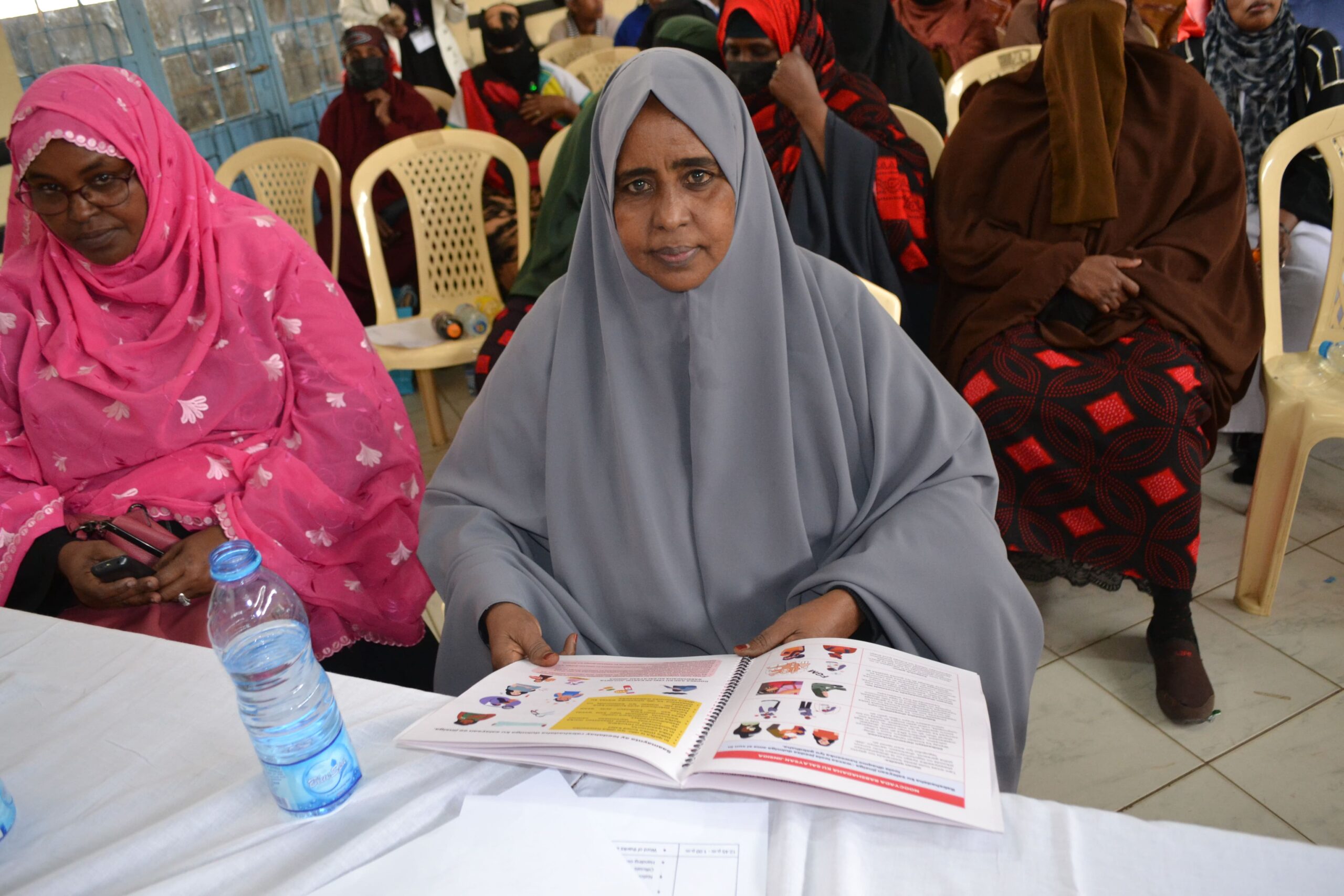
Kuelekea Mabadiliko. Working to end female genital mutilation.
The results achieved were significant:
- A support network was established among the participants.
- The women formed a savings group that allowed them to access small weekly loans through a rotating system.
- Participants received accurate information about Female Genital Mutilation (FGM) and its consequences, breaking the taboo and radically changing their perception of the issue.
- Women committed not to practice Female Genital Mutilation on their daughters and granddaughters.
- Participants learned to identify different forms of gender-based violence that they had previously considered normal behavior and gained knowledge on how to respond if they experienced violence.
- They also became aware of and utilized support services provided by various organizations, including the free services of MSF, Hesed, Refushe, among others.
- A total of 37 women graduated, receiving certificates and recognition from other organizations and government representatives, boosting their self-esteem.
After completing the program, two evaluation sessions were held with both groups to gather feedback from the participants and use this knowledge in future editions. Graduated participants will be part of the upcoming editions and actively engage as agents of change in their community to eradicate Female Genital Mutilation.
Toward a Future without Female Genital Mutilation: Next Generations
The first edition concluded with a graduation ceremony where participants received certificates, organization-logoed bags, a book containing all program content, and reusable sanitary pads. The ceremony was attended by and actively involved local and international organizations relevant to the sector, as well as important government members, religious leaders, and community leaders. This project has had a profound impact on the lives of these women and their families.
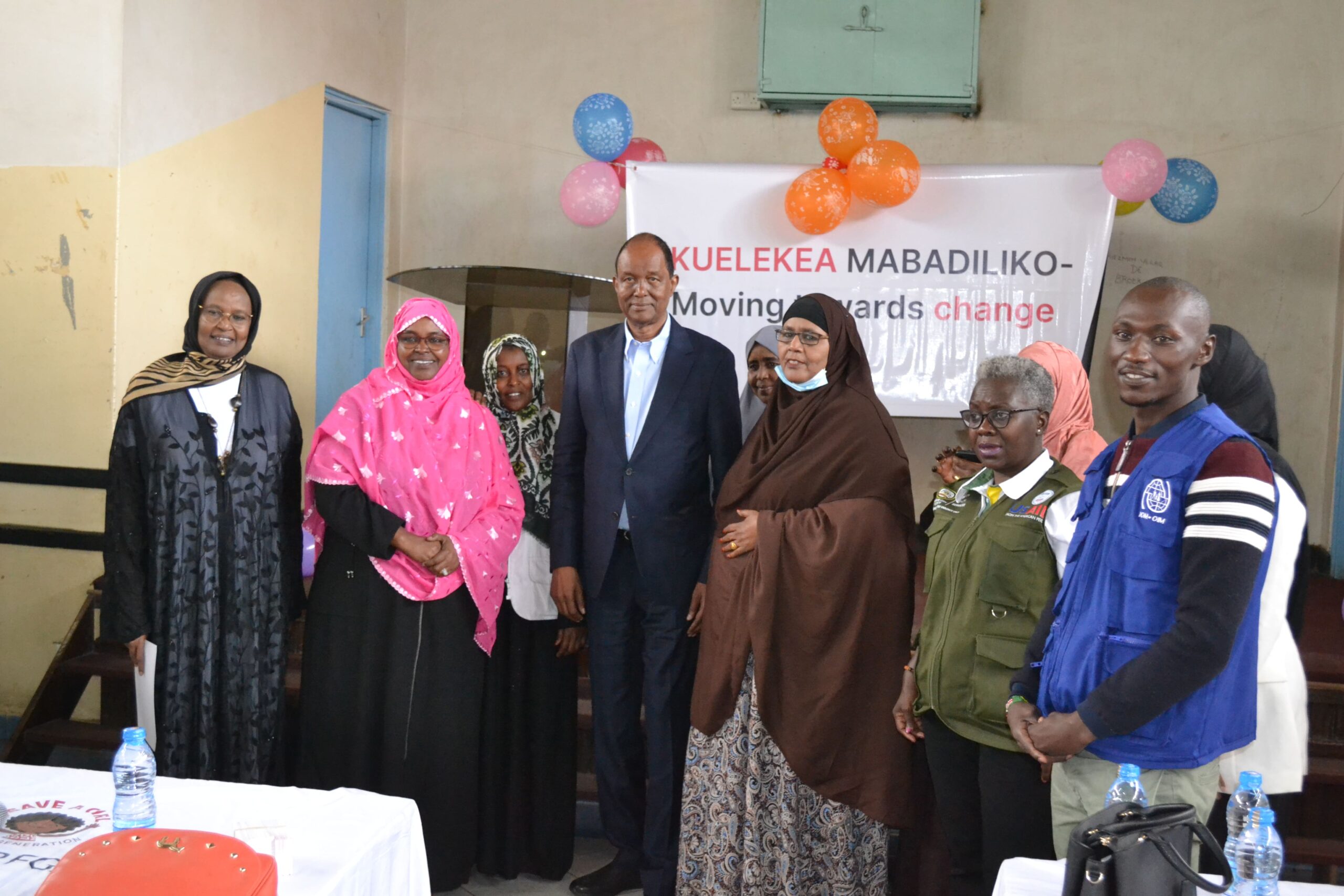
Family photo with MP Yussf Hassan and other organizations.
Their testimonies are moving and convey a clear message:
“Thanks to this program, I understand why I should not mutilate my daughter, and I won’t.”
“I wish I had participated in this program a few months ago… I mutilated my daughter because I thought it was the right thing to do, and now I regret it.”

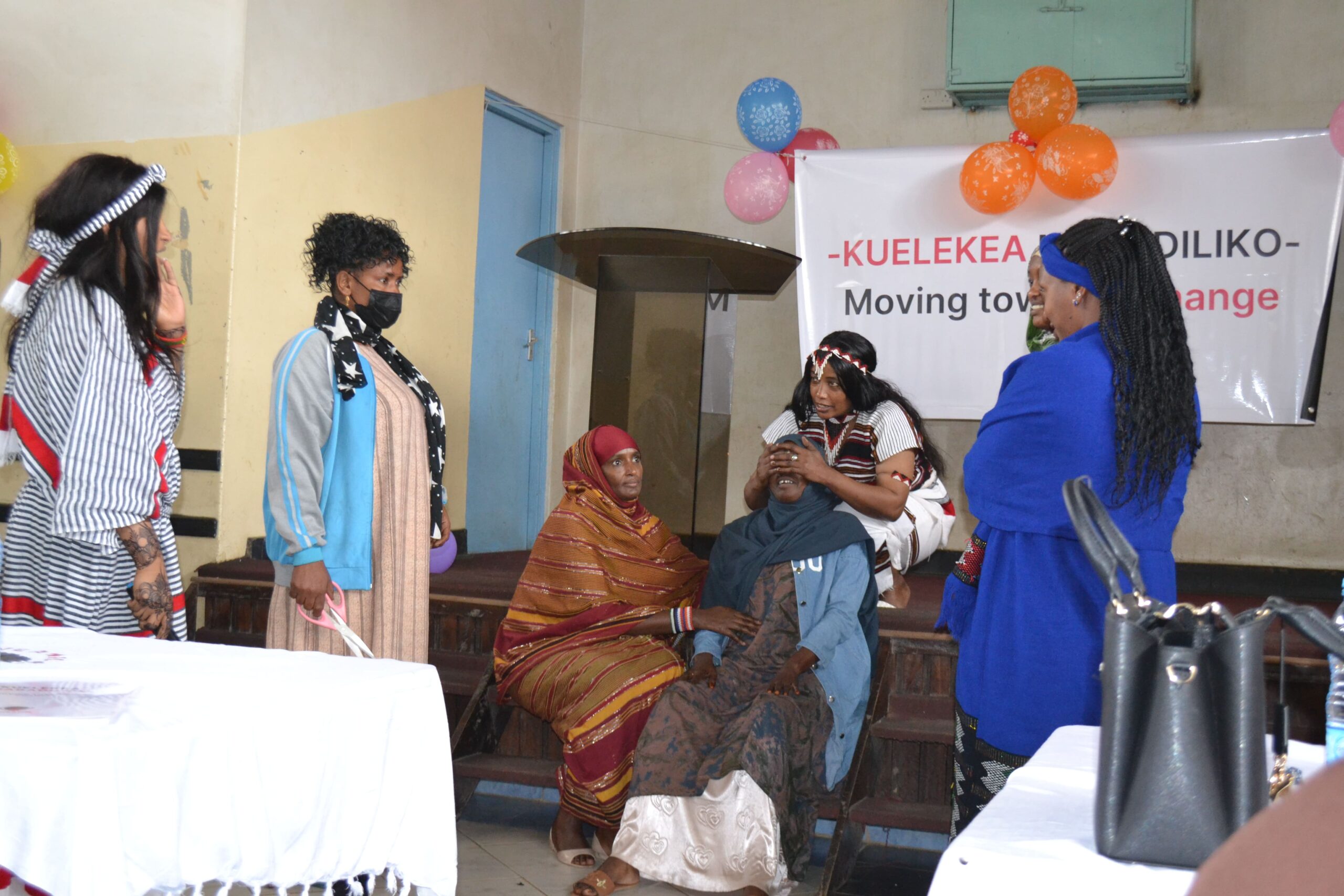
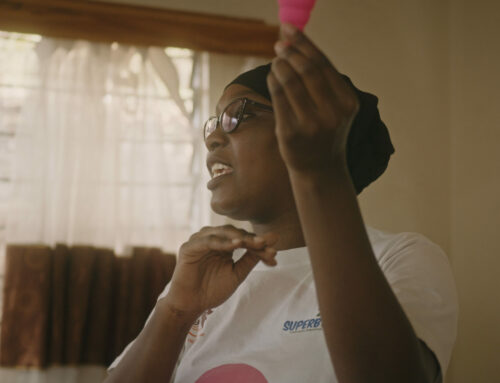
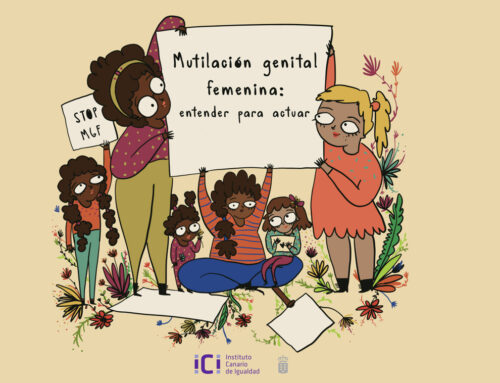
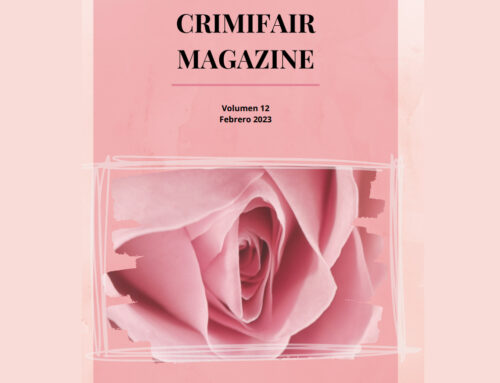
Leave A Comment